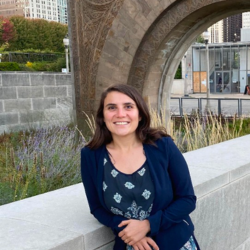
Please join the Politcal Science Department as they host Pilar Manzi, a Ph.D. candidate in political science at Northwestern University.
Although there is solid evidence that economic elites tend to have disproportionate political power, we know much less about their ideologies and policy preferences, particularly in the developing world. The purpose of my dissertation is to advance our understanding of these powerful actors by getting up close and personal and finding out how elites understand poverty and inequality, their causes, and solutions. The first part of my dissertation draws on 149 interviews with Latin American economic elites and on web-scraped data of their views from the media. I come to two conclusions. First, there is undoubtedly a common elite ideology that emphasizes the role of the private sector as the main path towards development. However, on top of this core base, the context in which elites are embedded creates important distinctions. I find, for example, the pervasiveness of poverty in Honduras, coupled with a corrupt state, makes elites less prone to blaming individuals for their fate. On the other end, where poverty is more hidden and where the state is stronger – as in Uruguay – this makes elites more inclined to place the responsibility on individuals and not on societal factors. In the second part of my dissertation, I focus on understanding what explains elite opposition to progressive taxation. Using a survey experiment among Latin American MBA students - “rising elites” - I test whether elites are indeed willing to accept higher taxes under more appealing scenarios, or whether their usual justification for rejecting higher taxes is simply “cheap talk.”
Pilar Manzi is originally from Uruguay and has lived in several Latin American countries throughout her life. Now a PhD Candidate in the Political Science Department, she is researching the politics of inequality with a particular focus on preferences for redistribution and the political dynamics behind social policies.
Audience
- Faculty/Staff
- Graduate Students
Interest
- Academic (general)